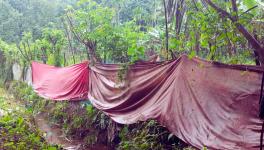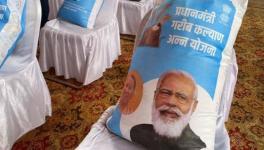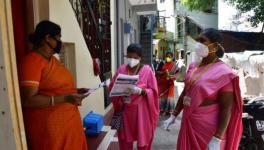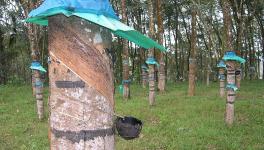Kerala: What is the Kitex Controversy All About
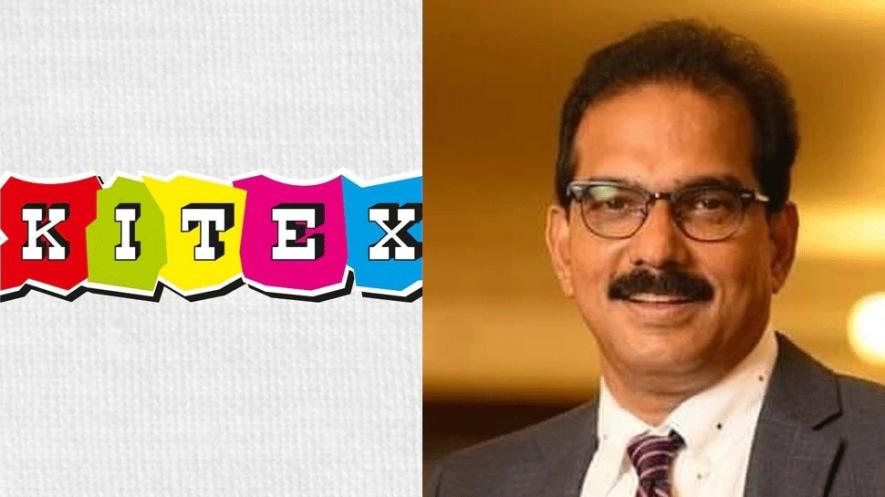
Image Courtesy: Newsdir3
Early last month, PT Thomas, Congress MLA from Thrikkakara contstituency in Ernakulam, raised allegations in the Assembly that the Kitex Garments textile unit in Kizhakkambalam was polluting the Kadambrayar River that passes through parts of Thrikkakara municipality.
Thomas alleged that Kitex Garments, one of the leading infant wear manufacturers in the world and the largest private sector employer in the state, had shifted its polluting units to Kerala from Tiruppur in Tamil Nadu and was now endangering close to 10 lakh people who depend on water from the river.
Talking to the media, Thomas further claimed that by operating the bleaching and dyeing units without installing a proper waste management plant, Kitex was violating human rights and flouting the Supreme Court’s directive.
Sabu M Jacob, Managing Director of Kitex Garments Ltd and head of the Anna-Kitex group founded by his late father, denied all these allegations and announced that the group was serving a Rs. 100 crore defamation suit against Thomas.
However, a controversy was just unfolding. Citing frequent inspections of his factory premises and what he called harassment by government officials without even informing him as to what the inspections were for, Jacob went on to announce that Kitex would be withdrawing from a planned Rs. 3,500 crore in apparel and industrial parks in Kerala.
Jacob alleged that he was being “hounded” by government authorities because of his political activities (a reference to the group Twenty20, an “apolitical” corporate team promoted by the Anna-Kitex group that has fought panchayat elections and or which he serves as chief coordinator), adding that Kerala was “not investment friendly”.
Kerala Government’s Response
Industries Minister P Rajeev was quick to respond to the allegations raised by Jaocb. Clarifying that no inspections had been done by his department and no complaints had been raised by Kitex when officials from other departments had inspected their premises, he maintained that the state government was willing to address any concerns that the company had.
When Jacob pressed ahead with his plans to seek new pastures for Kitex Garments to invest and questions were raised as to whether the Kerala government was “deliberately” turning him away, Rajeev stated that all inspections had been carried out based on complaints, some of which were to authorities such as the National Human Rights Commission and the Kerala High Court, apart from those given by Congress MLAs, including PT Thomas.
The minister further said that Kitex Garments had only given a letter of intent to the state government and had not proceeded further with plans for the investment since last year.
The complaints against the firm related to non-payment of minimum wages, not providing proper hygienic housing premises to workers and failure to follow covid19 restrictions mandated by the state, apart from those regarding pollution, the minister said.
Noting that the government was duty-bound to investigate these complaints, Rajeev also said that there was a major social media campaign to defame the state and the government.
Chief Minister Pinarayi Vijayan, while meeting the press on July 10, rubbished the claim that Kerala was “anti-business”. Pointing out that these are claims based on archaic notions of the state, he said raising outdated argument that the state was “not investment friendly” was part of a concerted effort to insult Kerala.
Highlighting the gains made by the state in indices reflecting its conduciveness to investment (Kerala had come out on top of NITI Aayog’s Sustainable Development Goals Index and second in their India Innovation Index in the fields of best business environment and human capital), Vijayan laid out the state’s plans to set up a statutory body for grievance redressal of businesspeople and a centralised software-based mechanism to conduct checks on industries.
The past five years have seen over 70,000 new units come up in Kerala in the MSME (medium, small and micro enterprises) sector. With the measures being taken to speed-up issuance of permits to entrepreneurs and to address their issues, the effort to improve the Ease of Doing Business Ranking of the state is going ahead, said Vijayan.
The Chief Minister added that any attempt to stall this industrial progress would be viewed as moves to wreck the state’s march forward, adding that everyone is duty-bound to follow rules and regulations.
Kitex, Twenty20 and the Allegations
When Sabu Jacob threatened that Kitex Garments would withdraw from its planned investment in Kerala, seasoned observers were quick to point out that he had a history of doing the same.
In 2012, in the midst of protests by residents against alleged pollution caused by the company, Jacob had said that he was abandoning plans for future investment in the state, alleging “political harassment”. At that time, he had claimed that the firm’s investment would be moved to either Colombo or China; only to renege on it later after talks with the then Congresss-led United Democratic Front (UDF) government.
In 2015, the non-profit charitable organisation named Twenty20 Kizhakkambalam, which had been set up two years earlier to carry out Kitex’s Corporate Social Responsibility (CSR) activities, decided to plunge into the local body elections. Winning 69% of the vote share, the outfit won 17 out of 19 seats to the Kizhakkambalam gram panchayat.
By using CSR funds and donations, the Kitex group bankrolled development projects and supermarkets selling subsidised goods to card-holding villagers, and even a monthly remuneration for its panchayat members. It became known as India’s first corporate panchayat and, for a while, the protests were forgotten.
However, the bad press hadn’t ended. Early in 2020, the Kizhakkambalam panchayat president stepped down ahead of a planned no-confidence motion against him. A slew of allegations against Jacob followed – of attempting to micromanage every function of the panchayat, awarding contracts and sanctioning projects according to Kitex’s interests and being responsible for the panchayat not using the funds available to it. Two journalists were also heckled by Twenty20 members when they went there to report the story.
Last year, Twenty20 won three other neighbouring panchayats while retaining the earlier one. They also managed to bring on board a host of celebrities and businessmen, including actor-scriptwriter Sreenivasan and industrialist Kochouseph Chittilappilly.
The Assembly elections, wherein they fielded eight candidates from Ernakulam district, was thus keenly watched. Twenty20, however, was not able to make any inroads this time.
With the textile industry facing the brunt of the pandemic and the ensuing lockdowns, Kitex Garments had also been performing badly. It is at this juncture that that the present controversy erupted.
What next?
In the climate of states competing against each other to attract investments in an attempt to kickstart the economy, Kitex’s announcement that it was looking elsewhere to invest in was met with welcoming hands from a number of other states.
After a meeting with Telangana Industries Minister KT Rama Rao, Jacob announced that Kitex would make an initial investment of Rs. 1,000 crore in the state. Stock prices went up by more than 50% in the past one week and Andhra Pradesh is now reportedly wooing the firm.
Temporarily, at least, this decision seems to have benefited Jacob. After the failure of Twenty20 in the Assembly elections and the return of allegations that he may have thought he’d left behind, this controversy has brought him back to the limelight as a “wronged do-gooder”; and with textile exports recovering, Kitex Garments can be expected to make a recovery.
The future of the corporate party Jacob founded, however, is anyone’s guess. And so too that of the complaints filed against the company. The residents of the gram panchayats that he now controls and over 9,000 workers that he employs (most of them migrant workers) are waiting and watching how things unfold.
Get the latest reports & analysis with people's perspective on Protests, movements & deep analytical videos, discussions of the current affairs in your Telegram app. Subscribe to NewsClick's Telegram channel & get Real-Time updates on stories, as they get published on our website.










